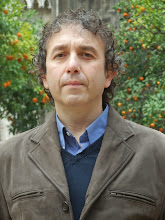Advantages and Disadvantages of Celebrities
Publicly Supporting Social and Political Causes (153)
My personal opinion about the
advantages and disadvantages of celebrities publicly supporting social and political
causes is that it is not an easy topic to deal with since it will just depend mainly
on the celebrity and secondly on your point of view or opinion regarding him or
her.
On the one hand, and because celebrities
are very well-known people, the events where they appear may get more publicity
than others and they can help raise amazing amounts of money for good causes.
On the other hand, due to the fact
that celebrities have almost instant access to the media, they could influence
people’s opinion for or against a specific question. Furthermore, people
sometimes believe celebrities’ opinions without doing their own research.
To sum up, whether to be in favour
or against the appearance of famous people in public or social causes is a
difficult question which presents both for and against views.


